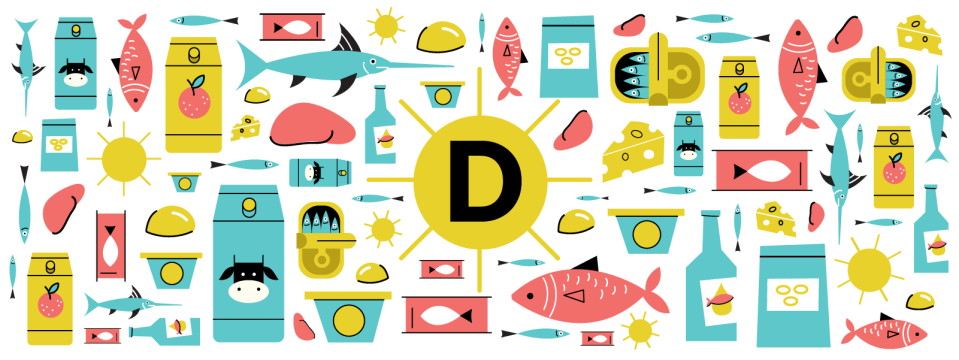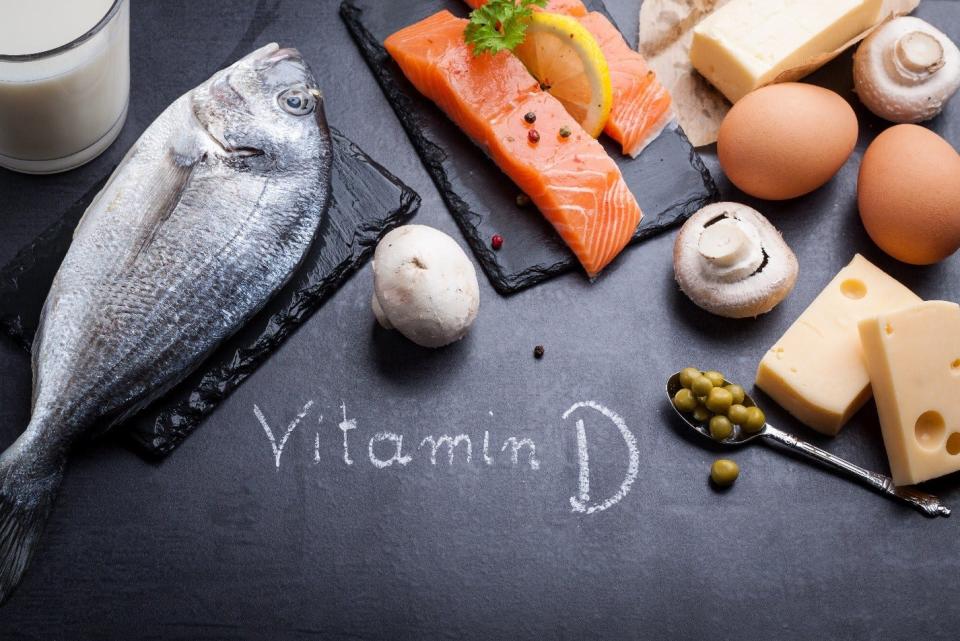What is vitamin D and why is it important to your health? Here are 6 things to know
Health issues never seem to be straightforward, simple, or consistent.
Here’s one example: Sunlight is healthy in many ways, but it also causes skin cancer. So, to avoid the downside, some folks cover up as much skin as possible and lather any exposed skin with sunblock. But, are they, ironically, putting their health in danger while trying to avoid a health risk? What about the rest of us during the winter months when sunlight is hard to come by?
Is sunlight a source of vitamin D?

Let’s first consider why sunlight is so important. Sunlight stimulates the body to produce vitamin D, and this possibly could be your only daily source. The reason is there are few good dietary sources, including cod liver oil, salmon, mackerel, tuna, and sardines, items that are not a regular part of most diets.
How much sunlight do you need?
How much sunlight you need depends on the intensity of the sun. If you live in the south, below Atlanta, you can get by with modest exposure of just 15 minutes every other day on the face, arms, legs, or back (without sunscreen) when the sun is bright, from late morning to mid-afternoon. As you move north, the sun is less intense, and you need longer exposure more often. But, let common sense be your guide, and don’t fall into the trap of thinking more is better.
The current recommendation to meet daily dietary vitamin D requirements ranges from 400 IU to 1000 IU, the amount increasing with age. If you don’t get enough sunlight and your diet fails you, the alternative is a vitamin D supplement. However, a word of caution. When it comes to supplementing, more is not better, so don’t overdo it. The reason is that vitamin D is fat-soluble. This means it can be stored in body fat and can accumulate to toxic levels. Overdoing supplements is the prime cause of toxicity, not your diet or too much exposure to the sun.
What is vitamin D toxicity?

The main problem with vitamin D toxicity is it can promote too much calcium in the blood. This can cause nausea, vomiting, and other symptoms, plus the formation of kidney (calcium) stones, a potentially painful outcome. Too much calcium in the blood also may contribute to increased calcification of arteries, hardening them.
The best way to determine your Vitamin D status is a simple blood test by your doctor. There also are tests you can do at home, and they can be accurate if you follow directions closely, especially when collecting the sample.
Why is vitamin D important to your health?

Vitamin D contributes to health in several ways, but appreciation for the importance of vitamin D is more recent. In the past, vitamin D was most commonly linked only to bone health because a deficiency of vitamin D contributes to a lack of calcium absorption in bones. In children the bones become weak, resulting in rickets, a skeletal deformity causing bowed legs. In older folks, a lack of vitamin D can contribute to osteoporosis.
Lately, the importance of vitamin D is gaining greater appreciation as several potential health links have surfaced. Lack of adequate vitamin D may possibly contribute to fibromyalgia, gum infections, rheumatoid arthritis, and even multiple sclerosis. In addition, folks living in northern climates may be at increased risk of contracting several forms of cancer, including colon, prostate, and breast.
What causes a vitamin D deficiency?
Vitamin D deficiency can be caused not only by inadequate vitamin D in the diet or a lack of sunlight but may include medications, weight loss surgery, or medical conditions like Crohn’s disease or celiac disease that prevent the absorption of vitamin D supplements. Obesity can be a factor if fat cells capture vitamin D and won’t release it. Kidney or liver disease also can prevent the transformation of vitamin D to an active form.
The reason vitamin D status does not attract more attention is a familiar one. Similar to deadly chronic diseases like heart disease and cancer, a poor vitamin D status has no specific symptoms early on, allowing the condition to progress unchecked. General symptoms like fatigue, muscle weakness, etc. can occur, but they could have other causes. This means in our society where preventive medicine is not as emphasized as it should be, vitamin D status is likely to be ignored.
What is the difference between vitamin D2 and D3?
Recently, I have received questions about the difference between Vitamin D2 and D3 supplements. It’s a bit complicated, but here goes. Both D2 and D3 are good, but D3 may be a better choice. The reason is that D2 and D3 can be viewed as inactive precursors, both undergoing conversion through chemical reactions in the liver and then the kidneys to an active form of Vitamin D, the ultimate goal. However, D3 is more effective in raising active Vitamin D levels.
D3 comes from animal sources whereas D2 is plant based. But D2 is still good and is effective for vegans who avoid foods that contain D3, including the foods listed above. Sunlight helps because it stimulates D3 and D2 production.
Regardless of dietary choices, your vitamin D3 intake is likely to be inadequate, especially during winter months when sunlight is hard to come by. That’s why food producers began fortifying foods with D3, particularly dairy products, plus orange juice, some breakfast cereals, and bread. For vegans, soy and almond milk are fortified with D2.
Reach Bryant Stamford, a professor of kinesiology and integrative physiology at Hanover College, at stamford@hanover.edu.
This article originally appeared on Louisville Courier Journal: What is vitamin D and why is it important to your health?

